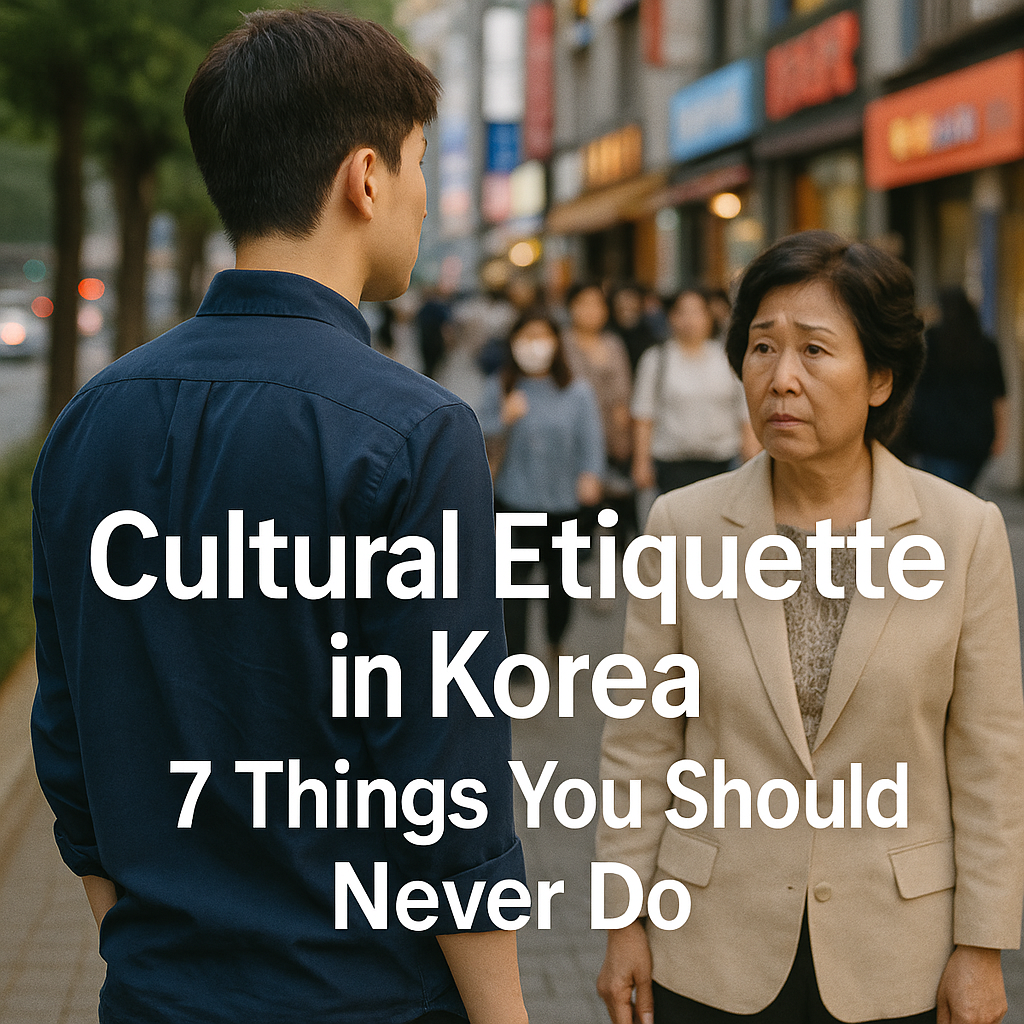Korea may appear modern and globally connected, but its deep-rooted cultural norms are still very much alive. These unspoken rules often surprise foreigners who unintentionally offend locals. If you’re planning to live, work, or travel in Korea, here are 7 things you should never do—and what you should do instead.
1. Speaking Informally to Elders or Superiors
In Korea, language reflects respect. Using informal speech with someone older or higher in status is more than rude—it’s socially offensive.
Why it matters:
Korean language includes formal and informal levels. Even accidental misuse can damage relationships in the workplace, in the classroom, or with neighbors.
What to do instead:
Start every interaction using formal speech. Use “-yo” endings and honorifics (e.g., “gamsahamnida” instead of “gomawo”). Observe how locals speak, and never assume familiarity too early.
2. Sticking Chopsticks Vertically into Rice
This resembles a funeral ritual for the deceased. It’s seen as deeply disrespectful at any meal.
Why it matters:
This is used in ancestral ceremonies. Seeing it at the table brings discomfort, especially for older Koreans.
What to do instead:
Place chopsticks beside the bowl or on a chopstick rest. Never cross them or stick them upright.
3. Writing Names in Red Ink
In Korean tradition, red ink was used to write names of the deceased. Writing someone’s name in red is seen as a death wish.
Why it matters:
Even if used casually, it shows cultural insensitivity.
What to do instead:
Use black or blue ink for names, especially on envelopes, cards, or notes.
4. Blowing Your Nose at the Table
Though acceptable in many Western countries, it’s considered unsanitary and disrespectful during meals in Korea.
Why it matters:
Cleanliness and social awareness are highly valued. Blowing your nose is perceived as rude to others at the table.
What to do instead:
Excuse yourself from the table, blow your nose in the restroom or in private, and return.
5. Refusing Alcohol Too Directly
In Korean culture, especially among coworkers or elders, refusing an offered drink can be seen as disrespect.
Why it matters:
Group harmony and hierarchy influence social interactions. Declining too strongly can harm group dynamics.
What to do instead:
Take a sip, gently decline, or offer a polite excuse like “I’m on medication.” Also, pour drinks for others as a sign of respect.
6. Touching People’s Heads or Bumping Shoulders
The head is considered a sacred or personal area. Unintentional shoulder bumps can feel disrespectful, especially in narrow public spaces.
Why it matters:
Koreans value personal space and physical boundaries.
What to do instead:
Avoid touching people casually. Offer a nod or slight bow instead of a pat or hug, unless you’re very close.
7. Confronting or Arguing in Public
Direct confrontation is rare in Korean culture. Loud criticism, especially in front of others, causes discomfort and loss of face.
Why it matters:
Koreans prefer indirect communication. Public embarrassment can damage relationships permanently.
What to do instead:
If you need to express disagreement, do it privately, calmly, and respectfully.
Final Summary
| Mistake | Why It Matters | What To Do Instead |
|---|---|---|
| Informal speech | Shows disrespect | Use formal Korean |
| Red ink for names | Symbol of death | Use black or blue |
| Chopsticks in rice | Funeral imagery | Use holder or side |
| Nose-blowing at table | Unhygienic | Step away briefly |
| Alcohol refusal | Group dynamics | Gently decline |
| Casual touching | Violates space | Use bow or nod |
| Public arguing | Loss of face | Handle privately |
Why This Matters for Expats
If you’re planning long-term life in Korea, avoiding these cultural mistakes will help you build trust, form deeper relationships, and avoid social friction.
What may seem small can mean everything in a culture that values harmony, subtlety, and respect.
